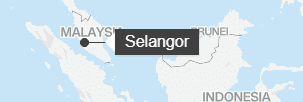KUALA LUMPUR, Malaysia – In a significant operation, Malaysian police have rescued 402 children from 20 welfare homes operated by Global Ikhwan Services and Business Holdings, following allegations of sexual abuse, child exploitation, and deviant teachings. The operation, led by Inspector-General of Police Razarudin Husain, resulted in the arrest of 171 individuals, including religious teachers and caretakers.
Details of the Raid: The raids, conducted across central Selangor and southern Negeri Sembilan states, targeted homes where children, ranging from infants to 17 years old, were subjected to severe forms of abuse. According to Razarudin, not only were these children victims of sexual abuse by their caretakers, but they were also coerced into abusing each other. The conditions in these homes were dire, with sick children denied medical care until their conditions became critical, and some were even subjected to physical punishments like being burnt with hot spoons for minor mistakes.
Background on Global Ikhwan: Global Ikhwan, originally linked to the controversial Al Arqam sect founded by Ashaari Mohamad, has been under scrutiny for years. Despite rebranding efforts post-Ashaari’s death in 2010, the group has faced continuous allegations of maintaining the sect’s deviant teachings. The organization, which has expanded globally with operations in over 20 countries, including high-profile restaurant chains, denied exploiting children but did not address the sexual abuse allegations directly.
Community and Legal Response: The rescue operation has sparked a national conversation on child welfare and the oversight of religious and welfare organizations. Global Ikhwan’s statement emphasized their commitment to legal compliance, particularly regarding child labor, though this does little to address the severity of the sexual abuse claims. The children rescued are now under medical assessment, with ongoing investigations expected to delve deeper into the practices within these homes.
Implications and Future Actions: This incident highlights a significant failure in the monitoring of child welfare institutions, prompting calls for stricter regulations and oversight. The Malaysian government and Islamic authorities are likely to face pressure to reform how religious and welfare organizations operate, ensuring that children’s rights are not only protected but also prioritized.
The case against Global Ikhwan and its affiliates will be closely watched, not only for the legal outcomes but also for the reforms it might inspire in child protection policies across Malaysia and potentially in other countries where similar organizations operate.
Conclusion: The rescue of these 402 children marks a somber chapter in Malaysia’s efforts to protect its youth from exploitation under the guise of religious or welfare activities. As the nation processes this tragedy, there’s a growing consensus on the need for systemic change to prevent such abuses in the future, ensuring that faith-based organizations uphold the highest standards of child welfare.





